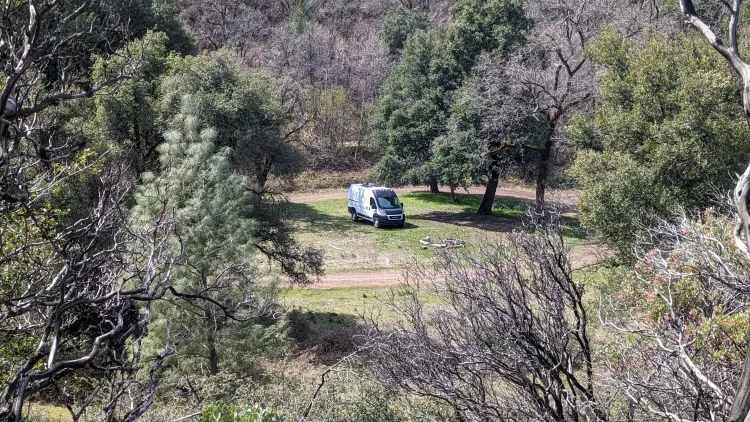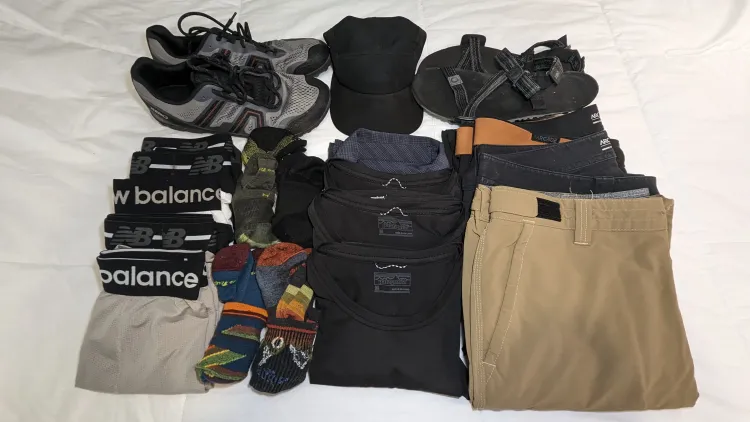8 Tips For Long-Term Travel As An Introvert.

Travel can be both a rewarding and overwhelming experience. Introverts enjoy travel in different ways than a lot of others.
Travel takes many forms. It can span from hours to years long. With careful planning, introverts can reap all the rewards of long-term travel. Here are some tips to help introverts enjoy long-term travel.
I've spoken about how introverts actually do enjoy travel here. Let's take a closer look at some ways that they can ensure they enjoy long-term travel in a sustainable way!
1. Deal with socialization on your terms
Travelling inherently involves a small amount of socialization. It's tough to avoid. When you travel, you need to speak with hotel staff, bus drivers, waiters, etc. Being mentally prepared to meet new people, make small talk, and being able to ask when you need help will help. You can plan some quiet time in solitude afterwards.
If you're concerned, there are ways to go about socializing less. Technology and our "new normal" have provided many introverted ways to experience travel. You can have every meal you'd want to be delivered to you in a contactless way. You are also able to check into some hotels and Airbnb in a contactless manner too!
I've run into situations where I found that I couldn't avoid socialization (at least in a polite way), and it kept wearing me down. I keep track of how I feel during those experiences and make sure that I can set up some time for myself. What works for me is something like grabbing takeout and bringing it back to my accommodations to eat while watching a movie on my own.
2. Do what's comfortable
Listen to your body and mind. You'll know what's best for you at the moment. Knowing how you recharge and process your thoughts ahead of time can help with this tip. It also helps to place yourself in situations you know you'll enjoy from the beginning.
If you need to sit down somewhere quiet in the evening to read and contemplate your day, then finding a quiet coffee shop can give you the comfort you need. Or perhaps you find the best way to unwind alone is a sauna. Maybe ordering room service for your comfort food will work too.
I mentioned above how I manage to recharge after too much stimulation. I also know things that can I can do that won't take too much energy. I thoroughly enjoy sitting at a coffee shop working away for a few hours listening to good music and occasionally indulging in some memes.
3. Incorporate zero days
Zero days are a fantastic concept that extends beyond long-term travel. It can apply to many situations where you need a full mental or physical break from a certain activity.
There's nothing wrong with taking days off from travelling during travelling. It is possible to become burnt out from moving every few days and engaging with new people and places just as often. Think of it like a mini vacation within a vacation.
Zero days have become so important to me. On top of travel fatigue, I also find myself worn out from how busy places are. Taking vacations within vacations has provided me with the right amount of R&R to feel like myself again and get back on the road!
4. Plan your activities depending on how you feel
Lots of activities are built for a minimum of two people. A majority of people in the world are extroverted, so it suits them. Sometimes, group activities can't fully be avoided. Some tour operators have a minimum number of participants. Some activities require two people, like climbing. So, if you're unable to avoid them when you'd rather set out alone, you might as well be prepared.
On the other hand, there are plenty of things to do solo. Hiking, camping, surfing, movies, reading, and enjoying live music can all be done on your own. There are plenty of activities that can accommodate introverts. It's also becoming more normalized to spend time enjoying ones own company. You don't need a partner to go out for a nice meal. Even the tours that require two people can often be swayed to allow one person, for an increased price.
Hiking seems to be my go-to activity no matter where I am. It's one of the top things I research before going to a certain area. I always look forward to hiking days because I know I'll be on my own. It also gives me time to think while trying to not be distracted by my heavy breathing.
5. Budget Appropriately
Like the point above, lots of activities are cheaper when there are two people. Sharing hotel expenses, guiding expenses, couples packages, and splitting meals are all cheaper when there are two people.
Things might cost more when you set out on your own. Being prepared for that will allow you to budget and plan for those types of costs. If for some reason you can convince someone you don't mind spending time with to join you, you'll be all the better (financially) for it!
I've spoken before about how important budgeting is. I've travelled with people in the past, and have always felt fortunate knowing I had someone to split the costs with. It makes your dollar go farther while travelling. Solo travelling keeps me fully in charge of the costs of travel, and in turn, I make sacrifices to still travel on a slightly smaller budget.
6. Plan accommodations for what you want out of them
A lot of recommendations on how to travel long-term say to decrease your spending on things like accommodations. Sometimes that means being in near strangers in loud environments where it's hard to have some time to yourself. That's the definition of a hostel. They say it provides you with a great opportunity to branch out and meet new people. That's easier said than done.
Contrary to that, you can have more control than forcing yourself to do things you might not actually want to. Some hostels have private rooms in their buildings, providing a great mix of isolation and socialization. And even if the walls are thin, using earplugs and white noise can make a big difference. When you've had enough of hanging out in the lobby with fellow travellers, you can retire to your own space!
Some of the worst experiences of my travels were at hostels where other people were up at all hours of the night giving a facetime tour to their family about what a capsule hotel looks like on the inside. I'm learning my lesson with regard to these types of situations. Even the other option of a private room in a hostel wronged me when I was sharing doorknobs and washrooms with someone who was so sick they shouldn't have been in public. Yes, I got sick too. Yes, that was the straw that broke the camel's back for that those types of accommodations for me.
7. Try getting out of your shell
Why not use the time when it might be easier to socialize to do just that? Travelling brings like-minded people together. It makes it easy to meet people. Who knows, maybe you could meet someone who fits the bill to be included in your tight social circle!
Travelling also provides a way to experience new things. Sometimes they can be more fun with partners too. Stepping outside of your comfort zone to explore and find novel sights is incredibly rewarding. It often counteracts the feeling of wanting to be in your own space due to the wonderful chemical processes of the brain!
Sometimes I happen across people who I deem to be worth my time when I least expect it. Those meetings have led to some awesome nights out! While I do enjoy those types of moments, I am also aware of how draining they are to me. After that experience, I think I spent over a week without trying to meet new people.
8. Think long term
Sure, you can play it day by day, city by city, and flight by flight while travelling. This type of spontaneity can be exciting. However, introverts might do better with a bit more planning. If you feel you might be in a situation that will make you feel exhausted, at the very least plan for some time to do something that makes you feel better.
Thinking long-term is crucial in long-term travel. Be mindful of what you decide to take on and experience. You're in it for the long haul. Making sure you take care of yourself as the introvert you are is crucial to ensuring the longevity of your travels. After all, you don't want to end up burnt out, wanting to return home to a safer space. Especially when you have so much more to see and do!
I'm learning as I go. Not everything I do will work for everyone, but it seems to be working for me. I've since given up on the idea that every single moment needs to be scheduled and that I need to act like an extrovert to be considered a good traveller. That's just not true. Doing what makes you happy while seeing new places and doing cool new things is what makes you a traveller.






Member discussion